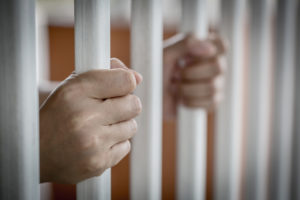 Rape and other acts of sexual violence and abuse in the nation’s prisons and jails are not simply the result of individual actions by inmates or corrections officials. These horrific crimes are also the byproduct of systemic problems with how millions of Americans behind bars are housed and supervised, as well as entrenched attitudes of indifference that allow these acts to continue without consequence.
Rape and other acts of sexual violence and abuse in the nation’s prisons and jails are not simply the result of individual actions by inmates or corrections officials. These horrific crimes are also the byproduct of systemic problems with how millions of Americans behind bars are housed and supervised, as well as entrenched attitudes of indifference that allow these acts to continue without consequence.
The tireless efforts of prison reform advocates to address these problems led to the bipartisan passage of the federal Prison Rape Elimination Act (PREA) in 2003. The purpose of the act was, in part, to “provide information, resources, recommendations and funding to protect individuals from prison rape.”
Almost ten years later, in 2012, the U.S. Department of Justice established hundreds of standards under the PREA for state and federal prisons, jails, juvenile facilities, community corrections facilities and immigration detention centers designed to reduce the number of incidents of rape and sexual assault, establish new reporting and investigation mechanisms, and provide victims with medical treatment and counseling.
No Private Cause of Action, But Safer and Easier to Report Rape and Sexual Assault
While the PREA provides that certain facilities may lose federal funding if they fail to comply with the standards, the PREA does not provide a private cause of action for inmates who suffer from attacks or harassment because of or related to a facility’s deficiencies in implementing PREA standards. However, victims can still bring civil rights claims based on rape and sexual assault under the federal Civil Rights Act as well as state laws in Louisiana and elsewhere through which they can hold the perpetrators accountable.
Even though the PREA does not give inmates an independent basis for seeking justice, accountability, or compensation in court, it does make it safer and easier for victims or witnesses to report acts of sexual assault and harassment which officials are then required to investigate. According to statistics from the federal Bureau of Justice Statistics(BJS), an increasing number of inmates have reported rape, sexual assault, and related violations since the passage of PREA standards in 2012.
In 2011, inmates reported 8,768 allegations of prison sexual assault and harassment. By the end of 2015, however, that number had risen to 24,661, an increase of more than 180 percent. But even with increased reporting, these statistics massively understate the scope of the problem, as the BJS estimates that more than 200,000 incarcerated Americans are sexually abused every year.
Additionally, even when rape and assaults are reported, officials conclude that an overwhelming majority of the allegations are unsupported. From 2012-2015, 61,316 investigations were completed, but officials decided that only 5,187 allegations — approximately 8.5 percent — were true.
Contact a Lawyer With Experience Handling Prison Rape and Sexual Abuse Claims
Families of inmates who suspect or know that their loved one has experienced a sexual assault can help by encouraging them to report the incident or incidents and arranging to meet with a lawyer experienced in protecting the civil rights of incarcerated individuals. Compensation may be available in a civil lawsuit, and those responsible for perpetrating or turning a blind eye to such heinous acts can be held accountable. Damages recoverable in a successful lawsuit can include compensation for physical injuries, emotional distress, psychological harm, and other losses.
In a civil suit for staff-on-inmate sexual assault, additional claims may be brought based on acts and omissions by corrections officials such as negligent hiring, negligent supervision, or the failure to discipline, reassign, or terminate the staff member.
If you or a family member have been raped, molested, or sexually abused while incarcerated, please contact the Lamothe Law Firm today to discuss your case.








